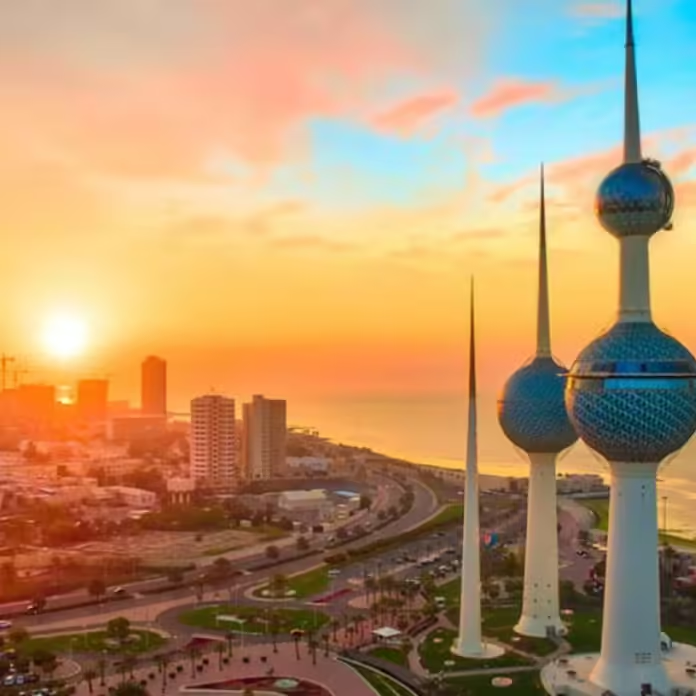By Simon Henderson and David Schenker
On May 10, the Kuwaiti ruler, Emir Mishal al-Ahmad al-Sabah, shut down the National Assembly and suspended parts of the constitution. The decision came four days before a new session was due to begin following elections in April. The emir, who came to the throne after his half-brother Emir Nawaf died in December, is now ruling by decree, supported by his new prime minister, Ahmad al-Abdullah al-Sabah, appointed May 1, and a Council of Ministers. The June 1 announcement of Sheikh Sabah al-Khaled al-Sabah as crown prince completes a new leadership team.
Kuwait has yet to pass power to a younger generation as has happened in the United Arab Emirates, where President Muhammad bin Zayed al-Nahyan is sixty-three, and in Saudi Arabia, where de facto ruler Crown Prince Muhammad bin Salman is thirty-eight. The Kuwaiti emir is eighty-six; his predecessor was a year older. Even the new crown prince is seventy-one. The new prime minister is seventy-two.
But the new lineup is a break with the past and could mark a radical change from the many years of contradiction between Kuwait’s significant oil production and a perennial economic crisis. Despite being OPEC’s fifth-largest producer and having a small population of around three million—of which 70 percent are expatriate workers—the country cannot produce enough electricity to serve its needs, leading to blackouts during the hot summer months. This summer power is also being imported by transmission line across Saudi Arabia from as far away as Qatar and Oman.
Persistent Dysfunction
Kuwait’s chronic problem can be described as administrative muddle exacerbated by tensions between the government and the National Assembly, the only elected such parliament in the Gulf with any power. That power in particular includes the right for members to challenge government ministers, some of whom the members regard as corrupt. The result has often been deadlock in decisionmaking, and incompetent management has continued.
One particularly damaging consequence of this dynamic is parliament’s inability since 2017 to pass legislation facilitating the issuance of debt. Kuwait’s oil income does not cover expenditures, forcing the use of income from its huge sovereign wealth reserves, or else borrowing while leaving the reserves intact.
Relations between the al-Sabah ruling family and Kuwaiti politicians have always been fractious. The April elections had been called after Emir Mishal was allegedly insulted by a member of parliament. Many observers doubt whether the dissolution will last the four years before a messy compromise deal to reactivate it becomes necessary in response to domestic tensions. The April elections saw 62 percent turnout, with so-called opposition parties ending up with twenty-nine seats in the fifty-seat forum. Shia members won eight seats. Only one member from the local Muslim Brotherhood party secured a seat.
Without the restraint of the National Assembly, the emir notionally now has free rein. He has an internal security background and became the effective head of the national guard. Crown Prince Sabah al-Khaled had a career in the Foreign Ministry, and then served as a minister, including foreign minister, ending up as prime minister in 2019. He is regarded as able, with a good reputation. Sheikh Ahmad, the new prime minister, is a former deputy governor of the central bank, and served in various ministries before becoming minister of oil from 2008 to 2011. Significantly, he was head of Mishal’s diwan (court) when the emir was crown prince, suggesting they work well together. The emir is continuing with Sheikh Fahad Yousef al-Sabah, regarded as controversial, as minister of interior and defense. Another significant holdover is Emad al-Atiqi as minister of oil.
Family Matters
The al-Sabah is a ruling rather than royal family, dating back to the 1700s, when the local merchant families wanted a single clan to deal with administrative matters, leaving them to do business. Time, and the discovery of oil, has changed the relationship. The al-Sabah itself has many branches, but its modern history dates from 1896, when Mubarak al-Sabah killed two of his half-brothers, including the then ruler. Mubarak secured British recognition of the country as a separate entity and became known as Mubarak the Great. Since his death in 1915, succession has flip-flopped between two of his sons and then their heirs, the al-Jaber line and the al-Salim line.
This system worked until the death in 2020 of Emir Sabah, a member of the al-Jaber, with this line dominating ever since. Sabah was succeeded by his half-brother Nawaf, whose successor, Mishal, was another half-brother.
Interestingly, the new crown prince is neither an al-Jaber nor an al-Salim but instead a member of the Hamad branch. But the crown prince has links to both the principal lines via his maternal grandfather and his father-in-law, which may make him acceptable to both.
Outlook
With leaders in Washington preoccupied by the Gaza war and the increasing threat of Hezbollah-Israel deterioration, the Kuwaiti leadership succession—along with closure of the National Assembly and suspension of the constitution—is unlikely to garner much attention. What these developments actually mean remains to be determined, but they are likely significant. Kuwait has shut down parliament several times in recent decades. As in the past, the current closure could prove a temporary measure intended to break the gridlock. It is possible, however, that the suspension could be more enduring, signifying an embrace of increasingly autocratic trends in the Gulf.
A more optimistic view is that a new, more qualified leadership team hailing from a different branch of the family tree will be capable of implementing policies long opposed by entrenched interests, thereby ending Kuwait’s malaise and pushing the state in a more dynamic direction—à la Saudi Arabia and the UAE. Without an obstructionist parliament, the logic goes, the emir, crown prince, and prime minister could rein in endemic corruption and start to diversify an economy solely based on and subject to the vagaries of fossil fuel prices.
Although U.S. Central Command maintains a forward headquarters in Kuwait with 13,000 service personnel, and Kuwait is a major non-NATO ally, successive U.S. administrations have paid surprisingly little attention to the state. With so many crises in the region, a stable Kuwait has been taken for granted. Yet Kuwait borders an Iraq increasingly dominated by Iran and is the target of intensifying Chinese interest and investment. An as-yet-unexploited offshore gas field shared with Saudi Arabia is also partially claimed by Iran.
While the instinct in Washington will be to scold Kuwait, as it has done with Tunisia, for a reversal of democratic progress, the administration should be patient. Over the next few months, the people of Kuwait and its Gulf neighbors will be watching as the country’s new leadership trio settles in. How the team manages its electricity challenges during the brutal summer heat will be an early test. Eventually, the assembly and constitution may be reinstated. In the meanwhile, it is possible that in the absence of this dysfunctional institution, some progress could be made toward ending Kuwait’s enduring malaise.
Simon Henderson is the Baker Senior Fellow and director of the Bernstein Program on Gulf and Energy Policy at The Washington Institute.
David Schenker is the Taube Senior Fellow at the Institute and director of its Rubin Program on Arab Politics. Previously, he served as assistant secretary of state for Near Eastern affairs from 2019 to 2021.




